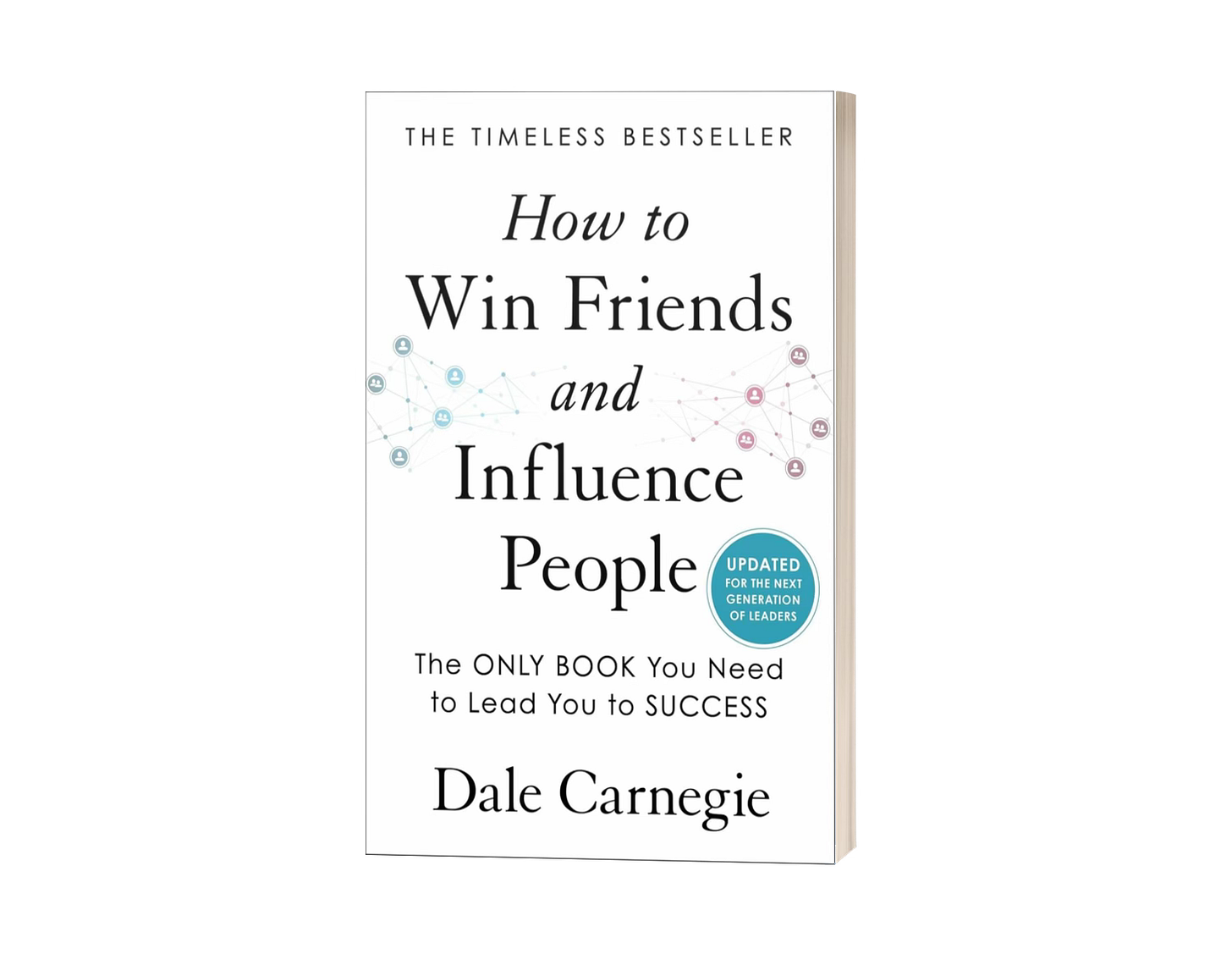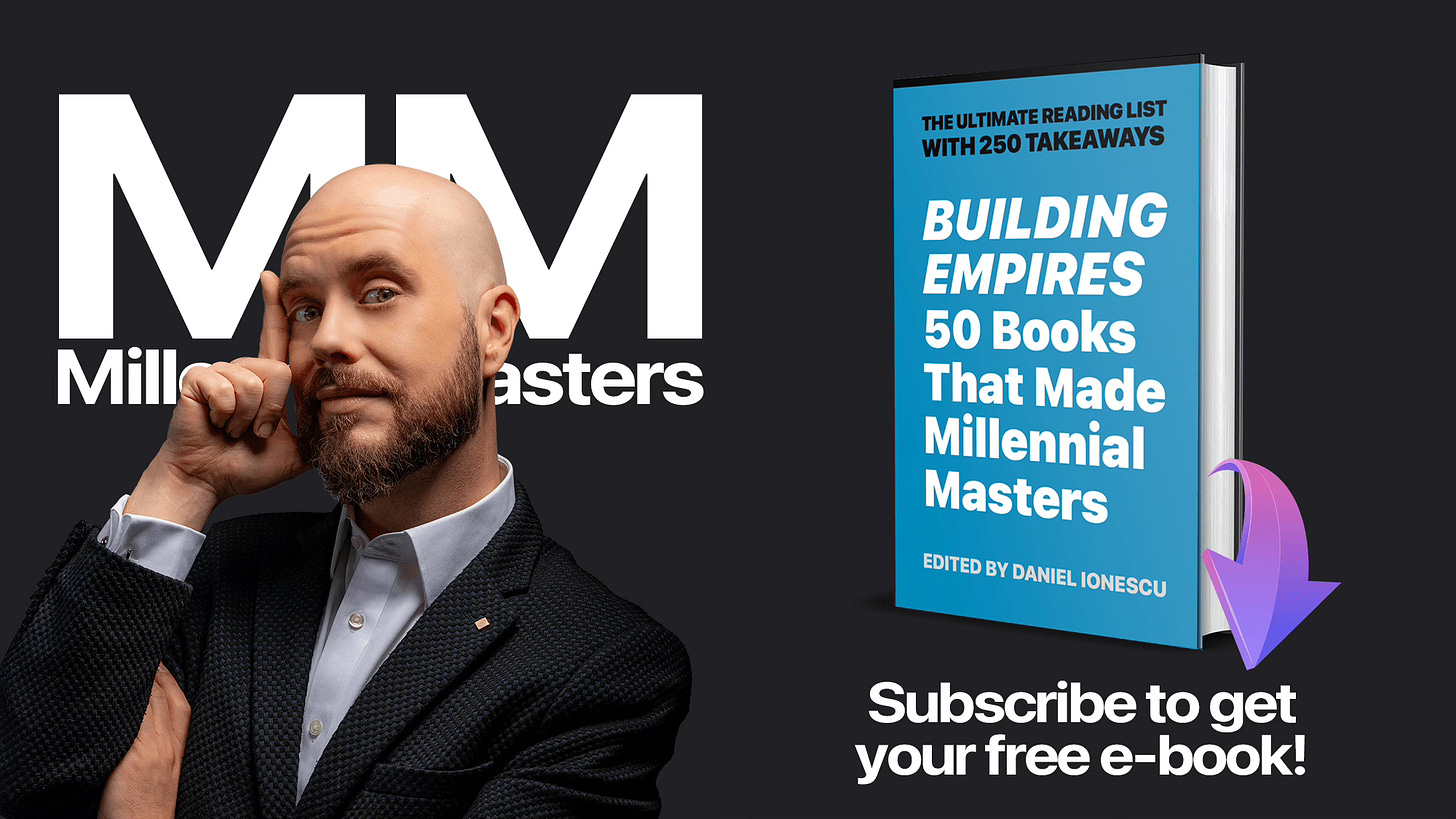How to get people to like and listen to you 🧲
10 timeless influence lessons from Dale Carnegie
Why do some people always get a “yes” while others don’t? Dale Carnegie cracked the code nearly a century ago in How to Win Friends and Influence People. A couple of years ago, the book was updated for the first time in 40 years, but the core message is still the same: if you know how to work with people, you can open doors that talent and hard work alone never will.
It’s no surprise that when I ask founders and leaders about the books that shaped them, this one always makes the list. Rob Smith, co-founder of Arrowtown Drinks, swears by it:
“Everyone’s pretty bored of me saying this. It genuinely changed my life in terms of not only personal life, but how you build relationships with people and also within business. I absolutely love this book because I think it just completely changes your perception on how to treat people. You can put the principles in place to really use it to your advantage.”
Rob didn’t just read it. He applied it to real business situations.
“I know for a fact I was reading that book and I tried one of the principles, and we managed to win a wholesaler listing off the back of it. Purely because all I could think about when talking to them was that book and that principle. So for me, it’s one of my favourite books of all time.”
When I asked Rob which principle made the biggest impact, he pointed to a simple but often overlooked one:
“One of the main principles is to show more interest in other people. Especially as a brand owner, it’s so easy to just want to tell them everything about your brand and why they should listen. But it’s more about letting them talk about what interests them, because people love talking about themselves. Once you read it in the book, it makes way more sense.”
For William Stokes, CEO & co-founder of Co-Space, the book reinforced the power of genuine communication:
“It’s one of my favourite books of all time. It talks a lot about understanding how different people are and how to talk to them in a way where you can get what you want, but do it in a way where it benefits everybody and isn’t just a take, take, take.”
Rob and William made a strong case for this book, so I went through it to pull out the key lessons you can start using right away. Let’s get to it! 👇🏻
Millennial Masters is brought to you by Jolt ⚡️ The UK’s top web hosting service
Dale Carnegie’s playbook for winning people over
1️⃣ Make people feel genuinely valued
People crave recognition. When giving feedback, start with something positive before suggesting an improvement. Instead of saying, “You need to work harder,” try, “I really appreciate your effort on this project. One tweak that could make it even better is…” Sincere praise builds trust and makes people more receptive to change.
2️⃣ Talk about what they care about, not what you care about
To be memorable, ask more questions and listen more than you speak. Before meetings or networking events, research what excites the other person: their latest project, industry trends, or personal interests. People naturally warm to those who show curiosity about their world.
3️⃣ Use names to create instant connection
People love hearing their own name. It grabs attention and makes conversations feel personal. Make a habit of repeating names after introductions and using them in conversation. Instead of saying, “Nice to meet you,” say, “Great meeting you, Sarah! Tell me more about your work.”
4️⃣ Agree first, then make your point
If someone has a different opinion, don’t argue. Acknowledge their perspective before presenting yours. Saying, “I can see why you’d think that” lowers defensiveness and opens the door to persuasion.
5️⃣ Hype people up, but mean it
People respond to feeling valued. If someone excels at something, let them know. A simple “You have a great eye for design” or “Your insights on marketing are always sharp” builds goodwill and stronger relationships. Just keep it real, people can smell fake compliments a mile away.
6️⃣ Let others take credit, it pays off
People remember who lifts them up and true leaders highlight their team. Instead of saying, “I came up with this strategy,” say, “The team did an incredible job shaping this idea.” Giving credit earns loyalty and respect, which ultimately boosts your own influence.
7️⃣ Turn criticism into a question
Rather than saying, “You should improve this,” ask, “How do you think we could improve this?” It shifts the conversation from defensive to collaborative, making it more likely that your suggestions will be accepted.
8️⃣ Use stories to persuade, not just facts
Data is forgettable. Stories stick. Instead of saying, “Customer experience is crucial,” tell a real story about how one small change led to a major customer retention boost.
9️⃣ Give people a reputation to live up to
Want someone to be more responsible? Say, “You’re always so reliable, I really appreciate that.” People live up (or down) to how they’re perceived, so reinforce positive behaviours.
🔟 Make the other person feel like the idea was theirs
Instead of pushing your viewpoint, ask leading questions that guide them to the conclusion you want. Example: “What do you think would happen if we tested this strategy?” When people feel like they arrived at the idea themselves, they’re more likely to commit to it.
The way you interact with others shapes every opportunity, partnership, and deal that comes your way. Small changes in how you listen, respond, and connect can completely transform the way people see you.
This book has influenced generations of entrepreneurs, and it’s still just as relevant today. If relationships matter in your life or business, this one’s worth reading.





